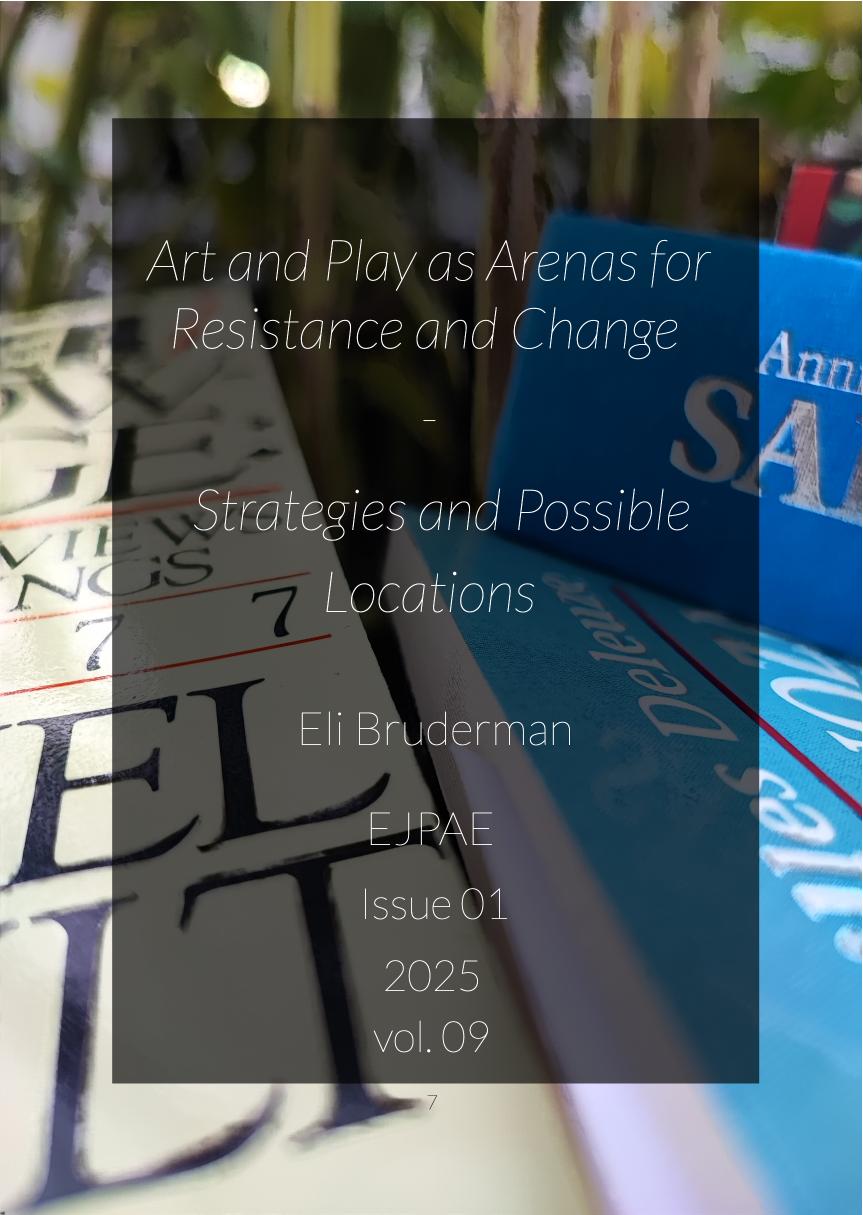Art and Play as Arenas for Resistance and Change
Strategies and Possible Locations
DOI:
https://doi.org/10.5281/zenodo.17287900Keywords:
museums; play; Art; beauty; Marcuse; hypo-modernism; technocracyAbstract
This paper examines whether Art and play can create an arena for activism and change, and if so, under what conditions this can take place and what strategies must be employed for its resistance to be effective. For the purpose of my inquiry, I link Art and play together and see them as natural, inseparable partners. This line of thought follows Friedrich Schiller and Herbert Marcuse, but ideas of thinkers, such as Johan Huizinga and Charles Fourier, can also be traced at the root of this approach. I argue that in its traditional institutions, especially museums, Art cannot constitute an arena for creating meaningful change in society and unable to generate resistance and change within its own socially accepted frameworks. A real change brought on by Art and play can happen in arenas that are fundamentally alternative to the institutional Art world. Finally, the discussion will turn to the alternative arena, the scene of communal creative activity, where Art and play create a change and have a meaningful effect on social processes.

Downloads
Published
Issue
Section
License
Copyright (c) 2025 ELI BRUDERMAN

This work is licensed under a Creative Commons Attribution 4.0 International License.
EJPAE provides immediate open access to all its published content. Users do not need to register or pay to read content.
https://creativecommons.org/licenses/by/4.0/
Authors of content published in European Journal of Philosophy in Arts Education (EJPAE) retain the copyright to their works. Content is free to be used by anyone as long as you "[...] give appropriate credit, provide a link to the license, and indicate if changes were made. You may do so in any reasonable manner, but not in any way that suggests the licensor endorses you or your use." and "No additional restrictions — You may not apply legal terms or technological measures that legally restrict others from doing anything the license permits." (from the Creative Commons licence agreement)
EJPAE does not charge any author or publication fees.
Authors are encouraged to deposit the final published version of their article for self-archiving (author's personal website) and/or archiving in an institutional repository immediately upon publication.




